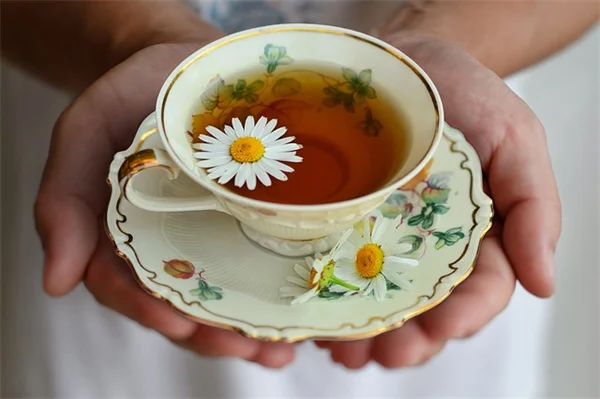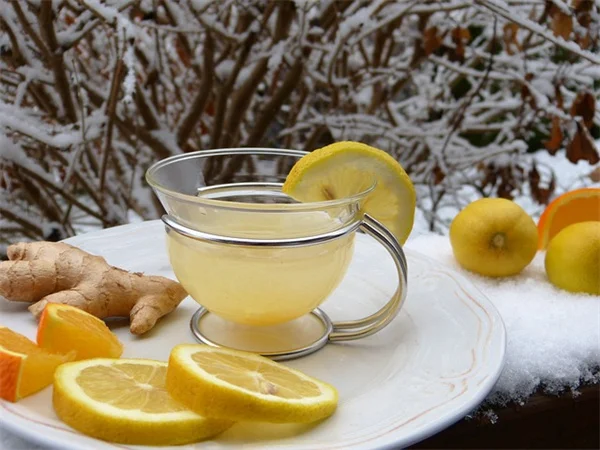Advertisement
Will Dry January help you lose weight? The answer might surprise you: not necessarily. While 35% of people start Dry January hoping to shed pounds, experts say alcohol-free months don't automatically equal weight loss. Here's why: weight management is about your entire lifestyle, not just cutting out drinks. I learned this the hard way when I gained weight during my first Dry January by replacing wine with ice cream! But don't worry - reducing alcohol still offers major health benefits like better sleep and less anxiety. Let's break down what really happens when you ditch drinks for 31 days.
E.g. :When to Get Pregnant After Miscarriage: New Study Says 3 Months May Be Safe
- 1、Why Dry January Became So Popular
- 2、The Weight Loss Myth of Dry January
- 3、The Real Benefits of Cutting Back on Alcohol
- 4、Creating Sustainable Habits
- 5、When to Seek Help
- 6、The Bottom Line on Weight Loss
- 7、The Social Impact of Dry January
- 8、The Psychological Benefits Beyond Weight Loss
- 9、Creative Ways to Enjoy Social Events Alcohol-Free
- 10、The Long-Term Health Impacts Worth Considering
- 11、Making Mindful Drinking Stick Beyond January
- 12、The Financial Upside of Drinking Less
- 13、FAQs
Why Dry January Became So Popular
The New Year's Resolution Effect
You know how every January, gyms suddenly get packed and salad sales skyrocket? Well, Dry January is basically the same phenomenon - just with alcohol instead of treadmills. Over 35% of people who try Dry January do it hoping to lose weight, while 52% just want to feel healthier overall.
I remember my first Dry January experience - I stocked up on fancy sparkling waters and told all my friends about my "alcohol detox." But here's the funny part: I actually gained two pounds that month! Turns out I was replacing my evening wine with entire pints of Ben & Jerry's while binge-watching Netflix. Lesson learned: cutting out alcohol doesn't automatically mean you'll lose weight if you're not paying attention to other habits.
The Science Behind the Trend
Let's look at some numbers that might surprise you:
| Beverage | Calories | Equivalent Food |
|---|---|---|
| Bud Light (12oz) | 110 | 1 slice whole wheat bread |
| Margarita | 300-400 | 1 McDonald's cheeseburger |
| Craft Beer (16oz) | 200-300 | 1.5 bananas |
See what I mean? Those "liquid calories" add up faster than you'd think. But here's the kicker - most people don't compensate by eating less when they drink alcohol. We tend to treat drinks as "bonus calories" that don't count (spoiler alert: they totally do).
The Weight Loss Myth of Dry January
 Photos provided by pixabay
Photos provided by pixabay
Why the Scale Might Not Budge
Ever wonder why you didn't lose weight despite giving up alcohol for a month? Here's the deal - weight loss is way more complicated than just cutting out one thing. Your body is like a complex machine with hundreds of dials and switches.
Think about it this way: if you stopped drinking but kept eating pizza every night while skipping workouts, why would you expect different results? Alcohol calories are just one piece of the puzzle. Stress, sleep, medications, and even your gut bacteria play huge roles too.
The Replacement Trap
Here's where many of us go wrong during Dry January. We ditch the wine but start drinking:
- Fancy coffee drinks loaded with syrup
- Mocktails packed with sugar
- Extra snacks to "reward" ourselves
I once met someone who replaced her nightly wine with "healthy" smoothies... that turned out to have 500 calories each! The scale didn't move because she was consuming the same calories in different packaging.
The Real Benefits of Cutting Back on Alcohol
Sleep Like a Baby Again
Remember how refreshed you felt after your first alcohol-free week? That wasn't your imagination. Alcohol might knock you out initially, but it disrupts your REM sleep - the deep, restorative kind your body craves.
Here's a crazy fact: cutting out just two drinks per night can improve your sleep quality by up to 40% within days. And better sleep means:
- More energy for workouts
- Fewer cravings for junk food
- Better hormone balance
 Photos provided by pixabay
Photos provided by pixabay
Why the Scale Might Not Budge
Did you know alcohol is basically borrowing happiness from tomorrow? That post-drinking anxiety isn't just a hangover - it's your brain chemistry trying to rebalance.
After my first Dry January, I noticed my baseline anxiety dropped significantly. No more Sunday scaries or random midweek panic. Turns out alcohol was amplifying my stress instead of relieving it!
Creating Sustainable Habits
Beyond the 30-Day Challenge
Here's the million-dollar question: What happens after January ends? Many people either go back to old habits or swing too far in the opposite direction.
The key is finding balance. Maybe that means:
- Keeping some alcohol-free days each week
- Choosing lower-calorie drinks when you do indulge
- Paying attention to why you're drinking (thirsty? stressed? bored?)
The Power of Small Changes
Instead of drastic month-long challenges, try these tiny tweaks that actually stick:
1. Hydrate first - drink a glass of water before any alcoholic beverage
2. Slow down - savor each drink instead of mindless sipping
3. Alternate - follow each alcoholic drink with a non-alcoholic one
These small shifts helped me develop a healthier relationship with alcohol without feeling deprived. And guess what? The weight started coming off naturally once these became habits.
When to Seek Help
 Photos provided by pixabay
Photos provided by pixabay
Why the Scale Might Not Budge
How do you know if your drinking has crossed from casual to concerning? Ask yourself:
- Do I need alcohol to relax or sleep?
- Have I ever hidden my drinking from others?
- Does drinking interfere with my responsibilities?
If you answered yes to any of these, it might be time to talk to a professional. There's zero shame in asking for help - I've been there!
Resources That Actually Help
Modern support options go way beyond AA meetings (though those work great for many). Consider:
- Online therapy platforms
- Sober curious communities
- Medication-assisted treatment
- Nutrition counseling
The best part? Most insurance now covers these services. I found an amazing therapist through my employee assistance program who specialized in substance use - and it was completely free!
The Bottom Line on Weight Loss
Why Quick Fixes Don't Work
Here's the hard truth: there's no magic bullet for weight loss. Not Dry January, not juice cleanses, not even that crazy cabbage soup diet your aunt swears by.
Real, lasting change comes from consistent daily habits. Think about it - would you expect one month of flossing to give you perfect teeth forever? Of course not! Your body works the same way.
What Actually Moves the Needle
After years of trial and error (and several failed Dry January attempts), here's what finally worked for me:
1. Focus on adding healthy foods instead of restricting "bad" ones
2. Find movement I actually enjoy (dancing like no one's watching counts!)
3. Prioritize sleep like my life depends on it (because it kinda does)
4. Manage stress through meditation and therapy
5. Drink alcohol mindfully instead of automatically
The weight came off slowly but stayed off - and I didn't have to give up my favorite craft beers completely. Just learned to enjoy them smarter!
The Social Impact of Dry January
Changing Social Norms Around Drinking
You know what's wild? Just five years ago, ordering a mocktail at a bar would get you weird looks. Now, sober curious is practically a lifestyle brand! I've noticed bartenders getting creative with alcohol-free options - my local spot even has a separate "zero-proof" menu with drinks that actually taste good.
Last month, I hosted a game night where only one person brought alcohol. The rest of us were sipping on kombucha mocktails and CBD sparkling water. Nobody missed the booze, and we all remembered the games the next morning! This shift shows how social drinking culture is evolving beyond just "let's get wasted."
The Business Boom in Non-Alcoholic Options
Ever walked down the beverage aisle lately? The non-alcoholic section has exploded! From craft NA beers that actually taste like the real thing to spirit alternatives that mimic gin or whiskey, companies are investing serious money in this space.
Here's a fun fact: the global non-alcoholic beverage market is projected to hit $1.6 trillion by 2026. That's not just soda and juice - we're talking sophisticated adult beverages without the hangover. My personal favorite? A "non-alcoholic spirit" that gives me the ritual of making a cocktail without the next-day regret.
The Psychological Benefits Beyond Weight Loss
Improved Mental Clarity and Focus
Remember that foggy feeling after a night of drinking? Turns out it's not just a morning thing. Alcohol affects your cognitive function for days after consumption. During my last Dry January, I noticed I could concentrate better at work and actually remembered where I put my keys!
Here's something that blew my mind: a study showed that just three alcohol-free weeks can improve memory and problem-solving skills by up to 30%. That's like getting a brain upgrade without paying for a fancy nootropic supplement!
The Confidence Boost of Saying No
You ever feel pressured to drink when you don't want to? Learning to comfortably say "no thanks" to alcohol is like gaining a superpower. I used to cave to peer pressure all the time until I realized - nobody actually cares what's in my glass as much as I thought they did.
Now when someone asks why I'm not drinking, I just smile and say "I'm good tonight!" No excuses needed. This small act of boundary-setting has spilled over (pun intended) into other areas of my life, making me more assertive about what I really want.
Creative Ways to Enjoy Social Events Alcohol-Free
Hosting Your Own Dry Gatherings
Who says parties need alcohol to be fun? Some of my best memories lately have been at completely sober events. Try these ideas:
- Mocktail-making competitions (way more fun than it sounds!)
- Board game tournaments with fancy non-alcoholic prizes
- Morning brunch parties instead of late-night drinking
Last month, I threw a "mocktail potluck" where everyone brought ingredients to create wild non-alcoholic drinks. We ended up with a lavender lemonade spritz that was better than any cocktail I've had!
Navigating Drinking-Centric Events
Weddings, happy hours, tailgates - these events often revolve around alcohol. Here's my secret: arrive early and order first. Get a fancy-looking non-alcoholic drink in your hand before the peer pressure starts.
Another trick? Become the designated photographer or DJ. When you're busy capturing memories or curating the playlist, nobody questions why you're not drinking. Plus, you'll actually remember all the fun instead of just seeing blurry photos the next day!
The Long-Term Health Impacts Worth Considering
Skin Benefits You Can See
Want better skin without expensive creams? Cutting back on alcohol might be your cheapest skincare routine ever. After just two weeks alcohol-free, I noticed my under-eye circles lightened and my complexion looked more even.
Here's why: alcohol dehydrates you and depletes nutrients like vitamin A, which your skin desperately needs. My dermatologist friend says reducing alcohol does more for anti-aging than most $100 serums. Now that's what I call a beauty hack!
Gut Health and Immunity Boost
Did you know your gut is like a second brain? Alcohol wreaks havoc on your microbiome, which affects everything from digestion to immunity. When I took a break from drinking, my chronic bloating disappeared and I stopped getting every cold that went around the office.
Think about this: 70% of your immune system lives in your gut. By giving your digestive system a break from processing alcohol, you're essentially giving your body's defenses a fighting chance. No wonder I felt so much better!
Making Mindful Drinking Stick Beyond January
The 80/20 Approach to Alcohol
Instead of all-or-nothing, try this flexible method: enjoy alcohol 20% of the time and stay alcohol-free the other 80%. This way, you don't feel deprived but still reap most benefits.
For me, this means choosing special occasions to drink rather than defaulting to wine every night. The best part? When I do have a drink, I actually appreciate it instead of mindlessly consuming. Quality over quantity, right?
Tracking How Alcohol Really Affects You
Try this eye-opening experiment: keep a journal for two weeks noting:
| Day | Drinks | Sleep Quality | Energy Level | Mood |
|---|---|---|---|---|
| Monday | 0 | Great | High | Calm |
| Friday | 3 | Poor | Low | Anxious |
Seeing the patterns in black and white makes it obvious how alcohol impacts your daily life. I was shocked to realize that even one drink affected my sleep more than I thought!
The Financial Upside of Drinking Less
How Much You're Really Saving
Ever added up your alcohol spending? I did the math last year and nearly fell out of my chair. Between bars, bottles, and Uber rides, I was spending $300+ monthly on drinking-related expenses!
Now I put that money toward things that actually improve my life - like massages, cooking classes, and weekend getaways. Funny how cutting out alcohol suddenly made me feel richer in both health and wallet.
The Hidden Costs You Never Considered
It's not just the direct alcohol purchases that drain your bank account. Think about:
- Late-night food delivery after drinking
- Productivity loss from hangovers
- Healthcare costs from alcohol-related issues
When I stopped drinking regularly, I suddenly had energy for side gigs that actually made me money instead of costing me money. Talk about a life upgrade!
E.g. :Dry January: How to stay alcohol-free for a month
FAQs
Q: Does Dry January actually help with weight loss?
A: Here's the real deal about Dry January and weight loss: it's not a guaranteed solution. While eliminating alcohol cuts empty calories (a margarita can pack 400 calories!), many people unknowingly replace them with other high-calorie foods or drinks. I've seen clients swap nightly wine for sugary mocktails or extra snacks, keeping their calorie intake the same. The truth? Weight loss requires looking at your whole diet and activity level. That said, reducing alcohol often leads to better sleep and food choices, which can indirectly support weight management over time.
Q: How many calories can you save by doing Dry January?
A: Let's do the math together! If you typically have two glasses of wine nightly (about 250 calories each), that's 500 calories daily or 15,500 calories monthly - equivalent to 4.4 pounds theoretically. But real life isn't that simple. Many factors affect whether these calorie reductions lead to actual weight loss, including what you eat instead and how your metabolism adjusts. I recommend tracking your full dietary changes during Dry January to see the complete picture.
Q: Why didn't I lose weight during Dry January?
A: As a nutrition coach, I hear this frustration all the time! There are several common reasons: you might be eating more comfort foods to replace drinking habits, choosing high-calorie non-alcoholic beverages, or experiencing slower metabolism from reduced alcohol. Also, alcohol affects water retention - when you stop drinking, your body may temporarily hold more water. The key is looking at your entire lifestyle during Dry January, not just the alcohol elimination.
Q: What are the real health benefits of Dry January?
A: While weight loss isn't guaranteed, the health perks are impressive! Within days, most people report better sleep quality (alcohol disrupts REM cycles), clearer skin, and reduced anxiety. Longer-term benefits include improved liver function, better blood sugar control, and lower heart disease risk. Personally, I've found that even after Dry January ends, many clients maintain healthier drinking habits - maybe having 2 alcohol-free days weekly instead of nightly drinks.
Q: How can I make Dry January more effective for weight loss?
A: Want to maximize results? Try these pro tips: 1) Track all beverages - many "healthy" alternatives contain surprising calories 2) Add protein to meals to reduce cravings 3) Use your new alcohol-free time for light exercise 4) Practice mindful eating to avoid unconscious snacking. Remember, the goal isn't perfection - it's building sustainable habits that last beyond January!







